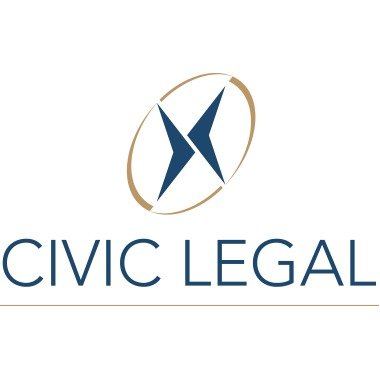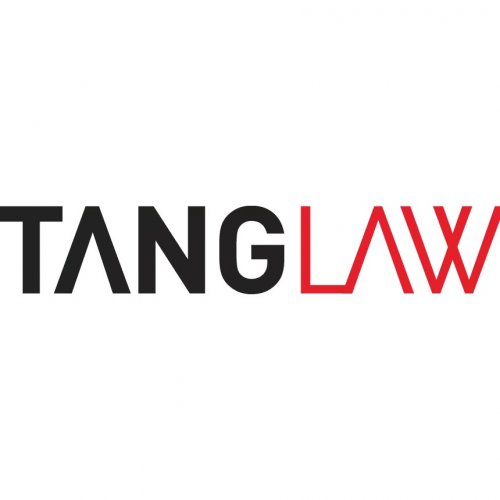Best Tax Increment Financing Lawyers in Perth
Share your needs with us, get contacted by law firms.
Free. Takes 2 min.
List of the best lawyers in Perth, Australia
About Tax Increment Financing Law in Perth, Australia
Tax Increment Financing (TIF) is a public financing method that is used to subsidize infrastructure and community-improvement projects. In Perth, Australia, TIF is an innovative tool for local governments aiming to encourage redevelopment and stimulate economic growth in urban and underdeveloped areas. Through TIF, future gains in taxes generated from a designated area are used to finance the improvements, with the intention of encouraging private investment that would otherwise be unlikely. Local authorities designate TIF districts, project the expected rise in property tax revenues, and use these increments to finance the initial improvements and development proposals.
Why You May Need a Lawyer
Engaging a lawyer experienced in TIF law can be crucial in several scenarios. Firstly, when navigating approvals and negotiations with municipal authorities, having legal guidance ensures compliance with legal obligations and optimal outcomes. Secondly, developers or investors uncertain about the financial or legal implications of TIF districts might require a lawyer to conduct due diligence and assess risks. Additionally, property owners affected by TIF projects might need legal help protecting their property rights or challenging valuations and assessments. Lawyers can also assist municipalities in structuring TIF districts and ensuring legal compliance throughout the development process.
Local Laws Overview
The application of Tax Increment Financing in Perth is governed by both state and local regulations. Key aspects include the designation of TIF districts by local councils, the requirement for comprehensive development plans, and strict guidelines on the type of projects that qualify for funding. There are also stipulations on public transparency and periodic reporting on the financial progress of TIF-funded projects. Furthermore, local governments must demonstrate that the development would not occur “but for” the TIF assistance, ensuring that tax increments solely induce new and beneficial projects rather than subsidizing typical developments.
Frequently Asked Questions
What is Tax Increment Financing?
Tax Increment Financing is a public funding method that uses projected future tax gains from property value increases to finance current improvements in designated areas.
How does TIF work in Perth?
The city designates an area as a TIF district. An initial assessment of property values is conducted, and anticipated tax gains are earmarked to finance public projects addressing the locality’s infrastructure or community needs.
Who benefits from TIF?
TIF primarily benefits local governments and communities by promoting economic development and infrastructure upgrades. Developers and investors can also benefit from significantly improved district amenities.
Are there risks associated with TIF?
Yes, risks include inaccurate tax increment projections, leading to funding shortfalls, or subsequent property value increases not covering the improvements' upfront costs. Both developers and municipalities should conduct thorough due diligence.
Can TIF funds be used for any project?
No, TIF funds in Perth are typically reserved for projects likely to contribute to community and economic development, such as infrastructure improvements and commercial projects that align with municipal strategies.
How are property owners affected by TIF?
Property owners may see the benefits of improvements and increased property values over time. However, they may also face higher property taxes over time as values increase due to improvements.
What public oversight exists for TIF projects?
Local councils are responsible for ensuring public transparency, with regulations requiring regular public reporting on the financial health and progress of TIF projects.
Do I need approval to start a TIF project?
Yes, approval is needed. Developers must work with local councils to propose eligible projects and navigate the approvals process according to existing local governance laws regarding TIF districts.
How is tax increment calculated?
Tax increment is calculated by measuring the increase in property tax revenues resulting from improvements within the TIF district compared to a pre-established base valuation.
Can TIF districts expire?
Yes, TIF districts typically have a set life span, commonly ranging between 15 and 30 years, after which new taxes are fully absorbed into the tax base of the local government or entities.
Additional Resources
For those seeking additional information, key resources include local government offices, such as the City of Perth Council, which can provide specific guidelines and statutes regulating TIF. The Department of Planning, Lands and Heritage in Western Australia can also offer relevant planning frameworks and legal considerations. Professional bodies like the Urban Development Institute of Australia (UDIA) can be valuable for networking and understanding industry standards.
Next Steps
If you need further legal assistance with Tax Increment Financing, consider consulting with a lawyer who specializes in property or municipal finance, offering expertise in both local regulations and project-based negotiations. It's wise to prepare detailed queries for your lawyer to address your unique concerns and circumstances fully. Taking steps to collaborate with financial advisors and municipal authorities can also provide you with a holistic approach to advancing your interest in TIF projects strategically.
Lawzana helps you find the best lawyers and law firms in Perth through a curated and pre-screened list of qualified legal professionals. Our platform offers rankings and detailed profiles of attorneys and law firms, allowing you to compare based on practice areas, including Tax Increment Financing, experience, and client feedback.
Each profile includes a description of the firm's areas of practice, client reviews, team members and partners, year of establishment, spoken languages, office locations, contact information, social media presence, and any published articles or resources. Most firms on our platform speak English and are experienced in both local and international legal matters.
Get a quote from top-rated law firms in Perth, Australia — quickly, securely, and without unnecessary hassle.
Disclaimer:
The information provided on this page is for general informational purposes only and does not constitute legal advice. While we strive to ensure the accuracy and relevance of the content, legal information may change over time, and interpretations of the law can vary. You should always consult with a qualified legal professional for advice specific to your situation.
We disclaim all liability for actions taken or not taken based on the content of this page. If you believe any information is incorrect or outdated, please contact us, and we will review and update it where appropriate.

















